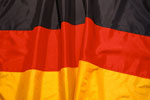 Wall Street Journal: Germany is resisting international pressure to freeze the activities of an Iranian-owned bank based in Hamburg that U.S. officials say provides the financial lifeblood for some of Iran’s blacklisted companies.
Wall Street Journal: Germany is resisting international pressure to freeze the activities of an Iranian-owned bank based in Hamburg that U.S. officials say provides the financial lifeblood for some of Iran’s blacklisted companies.
The Wall Street Journal
By DAVID CRAWFORD
 Germany is resisting international pressure to freeze the activities of an Iranian-owned bank based in Hamburg that U.S. officials say provides the financial lifeblood for some of Iran’s blacklisted companies.
Germany is resisting international pressure to freeze the activities of an Iranian-owned bank based in Hamburg that U.S. officials say provides the financial lifeblood for some of Iran’s blacklisted companies.
U.S. and European Union officials in recent months have stepped up pressure on Germany to close down the European-Iranian Trade Bank AG—including a Feb. 2 letter from 11 U.S. senators to German Foreign Minister Guido Westerwelle that urged immediate action. The U.S. says the German-licensed bank, known as EIH Bank for its German initials, has become a major financial conduit for Iranian companies involved in weapons proliferation. Last September, it added EIH to its own blacklist of entities banned from the U.S. financial system.
Germany has rebuffed such appeals, arguing that it has no proof of illegal activity. In February, it also blocked a French proposal presented in Brussels to designate EIH for EU sanctions, two diplomats familiar with the meetings say.
In a statement, EIH says its activities are legal and that it continues to operate under a German license.
In a response to the U.S. senators last month, Mr. Westerwelle said the bank operates under strict German oversight, a person familiar with the letter said. Should the oversight officials discover any suspicious activity, it would be forwarded to the EU sanctions committee, this person said.
German officials familiar with the EU discussions of sanctions say a key reason Germany has been reluctant to support efforts to crack down on EIH is the important role it plays in the business of legions of the country’s mid-size, or Mittelstand, companies with Iran. These companies fuel much of Germany’s export-driven economy and supply the bulk of its jobs.
In Berlin, that’s made the Mittelstand a powerful voice in lobbying against taking measures against EIH, government officials say. Lobbyists have argued the companies’ Iranian business doesn’t fall afoul of United Nations or EU sanctions—which focus on proliferation of weapons and a short list of industries including shipping and development of new energy reserves. They add that the bank provides a secure conduit for transactions with Iranian trading partners.
“EIH is a confidence builder” for German businesses that have legitimate business with Iran and might otherwise decide against trading, one German official said. Among dealings that are legal are sales of humanitarian goods, medical equipment and machinery that doesn’t have military use.
Though a number of large companies such as Siemens AG and ThyssenKrupp AG have bowed to political pressure and recently moved to retreat from dealings with Iran, Germany is third largest exporter to the Islamic republic—with €3.8 billion in Iranian exports last year—after the United Arab Emirates and China. Much of it comes from medium-size companies specialized in the machine tools and engineering prowess Iran relies on to modernize its infrastructure.
Siemens and ThyssenKrupp are honoring their existing contracts.
Larger European banks also have withdrawn from Iran in recent years, leaving EIH one of the few significant conduits in Europe for Iranian trade in euros.
In a meeting between U.S. and German officials in 2008, a German finance ministry official called it “the only relevant channel for Iran-related financial transactions in Germany,” according to U.S. State Department cables made available to certain media outlets by Wikileaks. The Wall Street Journal has reviewed the documents.
Founded by a group of Iranian merchants in Hamburg in 1971, the bank operates openly under the supervision of German regulators.
Though the U.N. Security Council hasn’t designated EIH a supporter of Iranian proliferation, the U.S. claims that the bank has handled “billions of dollars” of transactions for Iranian banks and provided financial services to Iranian entities already blacklisted by the U.S. for allegedly supporting proliferation.
Germany says it has stepped up its scrutiny of the bank. German Bundesbank auditors last year began reviewing thousands of EIH transactions, looking for evidence that would substantiate U.S. allegations. A spokesman for the German central bank declined to comment on the details or status of the audit.
Germany’s banking oversight agency, known as BaFin, has begun requiring EIH to report all transactions exceeding €10,000 ($14,457) and obtain prior government authorization for those of more than €40,000.
Still, some German banking oversight officials say the government’s monitoring of EIH has a gap because BaFin lacks the authority to supervise activities at EIH’s Tehran office, which the bank opened in 2008 to process some of its transactions. The bank has its headquarters in Hamburg and two branch offices in Iran. EIH declined to comment on this issue.
A BaFin spokesman said Germany doesn’t have an agreement with its Iranian counterparts that would allow regulators to visit the Tehran branch or conduct an audit in Iran. “We can’t conduct oversight overseas,” the spokesman said, “and we have no legal grounds for prohibiting a bank from opening a branch office outside of Germany,” he said.
An E.U. spokeswoman said the issue of sanctions is under constant review and declined to discuss the status of individual sanction talks. A German foreign ministry spokesman declined to discuss Germany’s sanction discussion with European partners.
A German Economics Ministry says two oversight officials are dedicated to continuously monitoring EIH activities in Hamburg. “The strict monitoring and control of EIH will continue,” an Economics Ministry spokeswoman said at a recent press conference.


